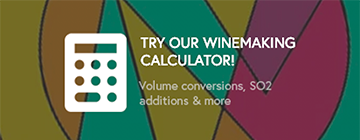WineBusiness Profile.
View your Winejobs activity.
Not a member? Create an Account
Members receive a FREE subscription to the Daily News Email. Join 30,000+ daily readers.
select news topic
Winejobs.com CompTracker
The Winejobs.com CompTracker provides compensation reports for 100+ winery jobs.
See the comp report for your job:
Winejobs.com CompTracker
Companies mentioned in this article:
MOST POPULAR
{{newsLink.title}}
{{newsLink.subtitle}}
Winejobs.com CompTracker
The Winejobs.com CompTracker provides compensation reports for 100+ winery jobs.
See the comp report for your job:
Winejobs.com CompTracker
WINEJOBS
{{wj.dateString}} | {{wj.locCity.toLowerCase()}}, {{wj.locState.toLowerCase()}}


